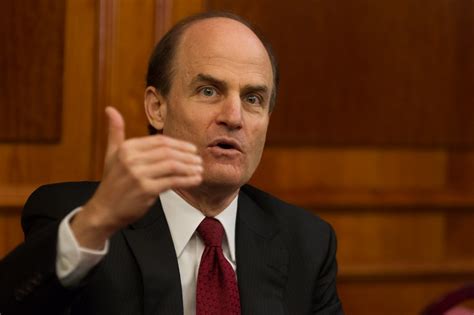A Quote by Hans F. Sennholz
Every businessman enjoying customer patronage, whether he be a baker, banker, or barber is conferring a public benefit, raising production, and reducing unemployment; businessmen earn their livelihood by producing products and rendering services where ever they are needed.
Related Quotes
You cannot make a man worth a given amount by making it illegal for anyone to offer him anything less. You merely deprive him of the right to earn the amount that his abilities and situation would permit him to earn, while you deprive the community even of the moderate services that he is capable of rendering. In brief, for a low wage you substitute unemployment. You do harm all around, with no comparable compensation.
As businessmen caught a glimpse of the potentialities inherent in endlessly expanding the wants of people under consumerism, forced draft or otherwise, many began to see blue skies... What was needed was strategies that would make Americans in large numbers into voracious, wasteful, compulsive consumers-and strategies that would provide products assuring such wastefulness. Even where wastefulness was not involved, additional strategies were needed that would induce the public to consume at ever-higher levels.
Free migration within Europe means that countries that have done a better job at reducing unemployment will predictably end up with more than their fair share of refugees. Workers in these countries bear the cost in depressed wages and higher unemployment, while employers benefit from cheaper labor.
Even as the government dominates the headlines, private entrepreneurs are busy every day working to improve products and services that improve our lives. They do it without taxing us or regulating us, or making us suffer through tedious elections or political debates. They make their products and offer them to us in a way that pleases the consuming public the most. We can choose whether we want them or not.
Because tax cuts create an incentive to increase output, employment, and production, they also help balance the budget by reducing means-tested government expenditures. A faster-growing economy means lower unemployment and higher incomes, resulting in reduced unemployment benefits and other social welfare programs.
The function of entrepreneurs is to reform or revolutionize the pattern of production by exploiting an invention or, more generally, an untried technological possibility for producing a new commodity or producing an old one in a new way, by opening up a new source of supply of materials or a new outlet for products, by reorganizing an industry and so on.
Converting a classic batch-and-queue production system to continuous flow with effective pull by the customer will double labor productivity all the way through the system (for direct, managerial, and technical workers, from raw materials to delivered product) while cutting production throughput times by 90 percent and reducing inventories in the system by 90 percent as well.



































